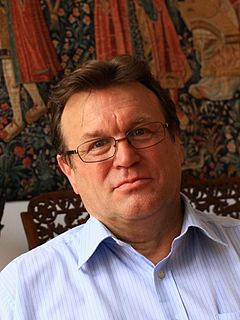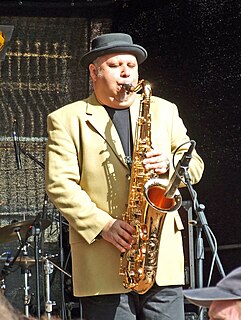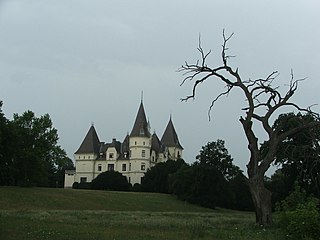 W
WKornél Ábrányi was a Hungarian pianist, music writer and theorist, and composer. He was born in Szentgyörgyábrány. A pupil of Frédéric Chopin, and a close friend of Franz Liszt, whose music he championed, Ábrányi chiefly wrote music for piano, but also composed chamber music, choral works, and lieder. He began teaching at the Franz Liszt Academy of Music at its founding in 1875 and became its Secretary.
 W
WKároly Aggházy, or Aggházy Károly [ˈɒkhaːzi ˈkaːroj] in Hungarian order was a Hungarian piano virtuoso and composer.
 W
WLászló Aradszky was a Hungarian pop singer, who became successful in the 1960s after participation in the talent show Táncdalfesztivál.
 W
WSigismund Bachrich, aka Sigmund Bachrich or Siegmund Bachrich, was a Hungarian composer, violinist, and violist of Jewish origin.
 W
WJózsef Balogh is a Hungarian clarinetist.
 W
WJános Bihari was an influential Hungarian Romani violinist. He is one of the founders of Romani academic music and the musical genre verbunkos.
 W
WGábor Boldoczki is a Hungarian trumpeter who plays Classical music.
 W
WAlex Márta, better known by his stage name ByeAlex, is a Hungarian indie pop singer, songwriter, journalist, and novelist. He represented Hungary in the Eurovision Song Contest 2013 in Malmö, Sweden, with the song "Kedvesem", coming 10th in the final. In 2014 his debut novel Özséb, egy öngyilkos Miskolcon was published in Hungary.
 W
WCharlie is a Hungarian rock and soul singer. In 1978, he married Katalin, with whom he has a son called Ákos.
 W
WZsuzsa Cserháti was a Hungarian pop-soul-jazz singer described as having a unique and versatile voice.
 W
WCsézy, real name Erzsébet Csézi, is a Hungarian pop singer. On 8 February 2008 she was chosen to represent Hungary at the Eurovision Song Contest in Belgrade with the song "Candlelight". She finished last in the second semi-final on 22 May with six points.
 W
WEndre Csillag is a Hungarian guitarist. His nickname is Csuka.
 W
WPanna Cinka was a famous Hungarian-Romani violinist.
 W
WKarl Doppler was a Hungarian flute virtuoso, conductor, music director, composer. He was the younger brother of the composer Franz Doppler and father of the composer Árpád Doppler.
 W
WGyörgy Fischer was a Hungarian pianist and conductor.
 W
WBarnabás von Géczy was a Hungarian violinist, composer and bandleader.
 W
WEtelka Gerster was a Hungarian soprano. She debuted in Italy in 1876 and sang in London the following year.
 W
WCaroline von Gomperz-Bettelheim, or C(K)aroline Bettelheim, pseudonym: Tellheim was a Hungarian-Austrian court singer and member of the Royal Opera, Vienna. Her younger brother was Anton Bettelheim.
 W
WJózsef Gregor was a renowned Hungarian operatic bass who enjoyed success first in Hungary, then in France, Belgium and Canada, and finally in the United States. József Gregor was born in Rákosliget, a small town that is now part of Budapest. He studied violin for ten years and then, voice at the Liszt Academy in Budapest for one year but did not graduate. He started singing with the Hungarian Army chorus in 1958 before becoming a soloist in National Theatre of Szeged in Hungary. In Europe he sang in many opera houses, including Vlaamse Opera and La Scala in Milan. Beginning in 1989, József Gregor appeared in the US with the Portland Opera and later with the Houston Grand Opera and the Metropolitan Opera. His most famous roles included Sarastro, Osmin, Falstaff, Don Pasquale, Dulcamara, Don Basilio, Don Bartolo, Don Alfonso, Leporello, Don Magnifico, Boris Godunov, Gremin, Varlaam, Gianni Schicchi, Philip II, Banquo, Attila, Pagano, Fiesco, Mephistofeles, Bluebeard etc., roles in masses and oratorios, musicals, and songs. He died in Szeged of gastric cancer.
 W
WDénes Gulyás is a Hungarian tenor. A native of Budapest, he studied at the Franz Liszt Academy of Music in that city. He had an international career in the 1970s, and sang at the Metropolitan Opera, among other houses; one of his performances there, a Manon in which he replaced Neil Shicoff as Des Grieux to the Manon of Catherine Malfitano, was broadcast live as part of the company's Saturday radio broadcast series.
 W
WTeri Harangozó was a Hungarian singer. She was one of the most influential female artists in Hungary in her time, whose independent album would influence many Hungarian singers after her.
 W
WZsolt Harsányi, also known as Zsolt von Harsanyi or Zsolt de Harsanyi, was a prolific and renowned Hungarian author, dramatist, translator, and writer.
 W
WVictor von Herzfeld was a Hungarian violinist and composer. He studied at the University of Vienna in law and at the Music Academy of Vienna music where he won first prize for both composition and violin playing. In 1884, he was awarded the Beethoven prize of the Society of the Friends of Music. He studied in Berlin with Eduard Grell and in 1886 went to Budapest as Professor in the Music Academy. He was second violin in the original Budapest Quartet established by David Popper and Jenő Hubay. Ernő Dohnányi dedicated his Sonata in C♯ minor for violin and piano, Op. 21 (1912) to Von Herzfeld. While serving as the music critic of the "Neue Pester Journal" he wrote a negative review of his friend and colleague Gustav Mahler's First Symphony. He is the author of a 1915 article on Robert Volkmann. He was buried at Kerepesi Cemetery in Budapest.
 W
WAlois Kaiser was an American chazzan and composer, considered to be the founder of American cantorate.
 W
WGeorgina Kanizsa, also known as Gina Kanizsa (born 28 April 1988, Szolnok) is a Hungarian jazz singer and performer, most notable for participating in A Dal 2017.
 W
WKarmapolis is a Hungarian electro Indie band, with András Kenyeres with the vocals, guitar, piano, synthesizer, producing and songwriting, Szabolcs Szipszer at the synthesizers, drums, and producing, and Gábor Lipi at the bass.
 W
WRita Kinka, is a Serbian pianist of Hungarian descent.
 W
WKatharina Klafsky was a Hungarian operatic singer whose acclaimed international career was cut short by a chronic illness which proved fatal.
 W
WLászló Komár was a Hungarian rock and roll singer. His most popular songs include "No Miss", "Mondd kis kócos", "Táncoló fekete lakkcipők" and "Mambo Italiano". During his career, he released 18 studio albums. He has sold an overall 3 million records.
 W
WJános Koós was a Hungarian pop singer, who became successful in the 1960s after participation in the talent show Táncdalfesztivál.
 W
WFrancis Alexander Korbay was a Hungarian musician.
 W
WLili Kraus was a Hungarian-born pianist.
 W
WAntal "Tony" Lakatos is a Hungarian Jazz saxophonist, who currently lives in Frankfurt (Germany).
 W
WEugene Lehner was a violist and music educator.
 W
WJohanna Martzy was a Hungarian violinist.
 W
WErika Miklósa, is a Hungarian coloratura soprano.
 W
WMaria Nemeth was a Hungarian soprano, particularly associated with the Italian repertory, one of the leading dramatic sopranos of the inter-war period.
 W
WIbolya Oláh is a Hungarian pop singer. She was the runner-up of the first series of Hungarian Pop Idol, Megasztár.
 W
WJózsef "Joci" Pápai is a Hungarian singer, voice actor, rapper and guitarist of Romani descent. He represented Hungary at the Eurovision Song Contest 2017 with the song "Origo" finishing in 8th place. He represented Hungary again at the Eurovision Song Contest 2019 with the song "Az én apám". However he failed to qualify for the grand final being the first Hungarian entry not to since returning in 2011.
 W
WPassed is a Hungarian indie electronic pop band. Their influences include Gabor Szabo and Carlos Santana. The members are twins of Polish origin, singer Dorottya and harpist Fanni Nizalowski from Budapest, bassist Dávid Godzsák, an ethnic Hungarian from Királyhelmec, Slovakia, and producer Levente Szabó from Sárospatak. Godzsák left to pursue a career with other musical groups and was replaced by Áron Farkas. One of their main goals is to bring back the harp into modern popular culture. The band's first single was released in June 2015, On The Grind, and was played on the radio.
 W
WEde Reményi or Eduard Reményi was a Hungarian violinist and composer. His birth date is disputed, and variously given from 1828-1830.
 W
WRezső Seress was a Hungarian pianist and composer. Some sources give his birth name as Rudolf ("Rudi") Spitzer.
 W
WJózsef Simándy was a Hungarian tenor with German origins. His name in Hungarian form is Simándy József, his original family name is Schulder. A student of Emilia Posszert, he joined the chorus of the Hungarian State Opera in 1940; in 1946, he made his debut as Don José in Carmen in Szeged. In 1947, he returned to the Budapest Opera, where he was the leading heroic tenor until 1984. He performed regularly in Munich as well, from 1956 until 1960. Besides heroic tenor roles, Simándy took on lyric and spinto parts as well; he was best known for his Radames, Lohengrin, and Otello. Recordings include two operas by Ferenc Erkel, Bánk bán and Hunyadi László, in both of which he sang the title role.
 W
WTamás Somló was a Hungarian musician, singer-songwriter and artist. He is mostly known for having been a member of Hungarian rock bands Omega and Locomotiv GT and for composing several of their successful songs. Beside of being a singer, his main instruments were bass guitar, clarinet, and the saxophone.
 W
WMihály Székely was a Hungarian bass singer famous for Mozartian roles. His name in Hungarian form is Székely Mihály, his original family name was Spagatner.
 W
WZoltán Székely was a violinist and composer.
 W
WAlex Szilasi is a Hungarian-Italian pianist. He graduated from the Ferenc Liszt Academy of Music in Budapest in 1993, where his professors were Ferenc Rados, Sándor Falvai and Péter Solymos. Szilasi gave his first recital in 1977 in Budapest. He has been a regular participant at international music festivals and has given concerts in England, Germany, France, Italy, Switzerland, Austria, Turkey, Russia, USA, South Korea, Canada and Poland. In 2001, he became the director of the "Esther" collection and the complete edition of Chopin, presented by Editions Fuzeau (France).47
 W
WEmil Telmányi was a Hungarian violinist.
 W
WIstván Thomán was a Hungarian piano virtuoso and music educator. He was a notable piano teacher, with students including Béla Bartók, Ernő Dohnányi and Georges Cziffra. His six-volume Technique of Piano Playing is still in use today.
 W
WImre Ungár was a Hungarian pianist.
 W
WJosef Waldbauer (1861–1920) was an Austro-Hungarian composer, violinist and music educator.